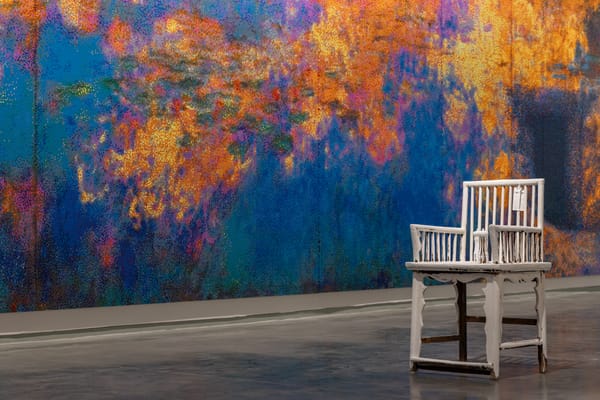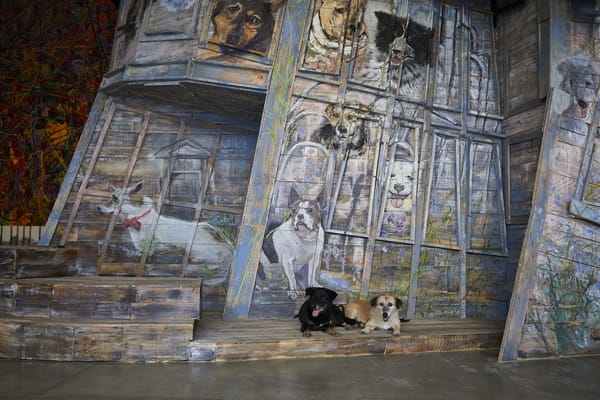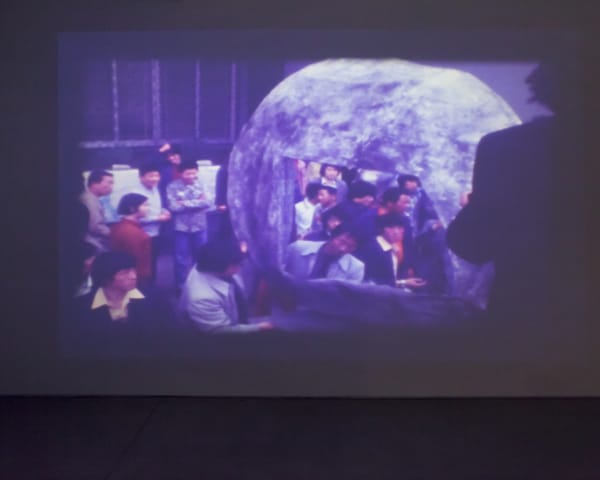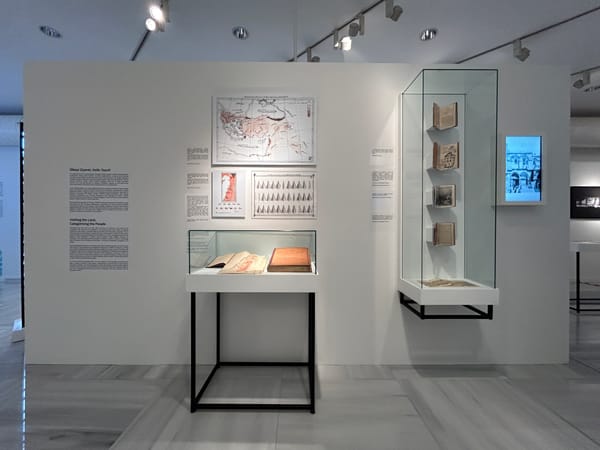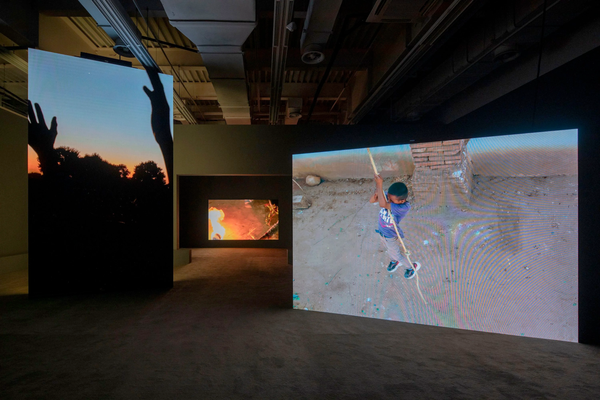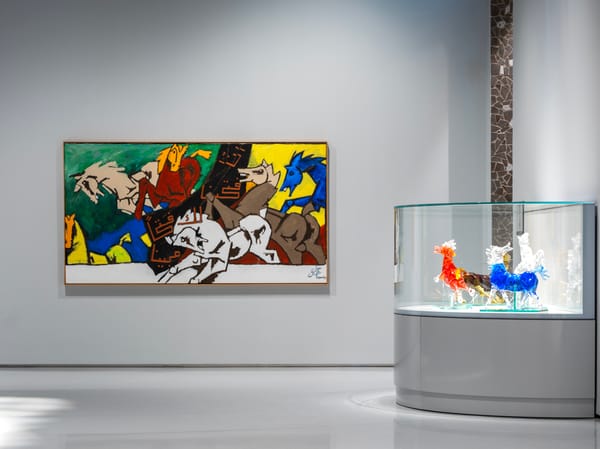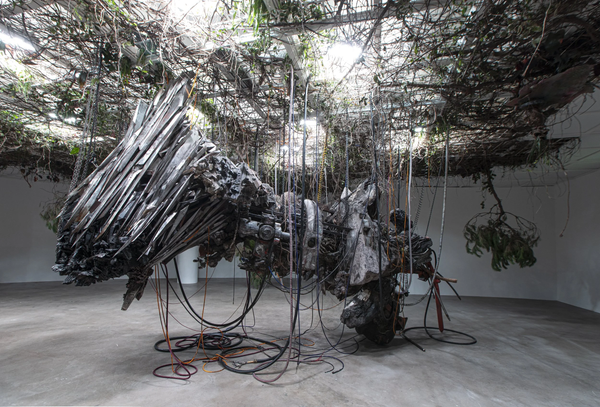Shows
Suki Chan‘s “Utopia on the Horizon”
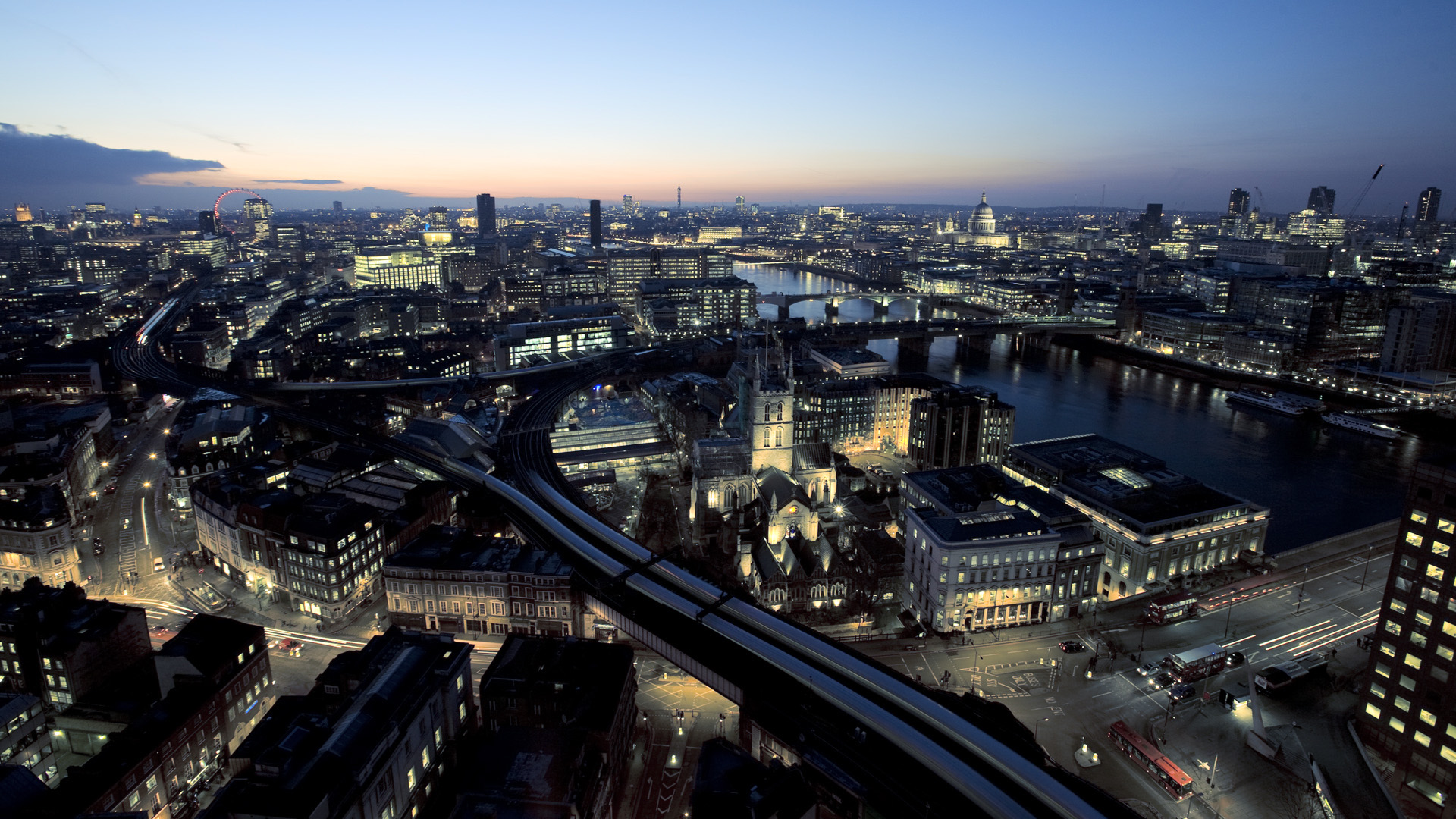

In Suki Chan’s most recent film, Sleep Walk Sleep Talk (2010), the Hong Kong-born, London-based artist finds the city of London to be a place of restriction and compromise. The film weaves time-lapse photography of urban spaces with footage of inhabitants as they move, skate, drive and wander through the city. The viewer watches Nigerian security guards, gatekeepers of deserted high-rise office blocks, and listens to them explain to the camera how the “freedom” of London compares to the aspirations of their former lives. Skaters, graffiti writers and train drivers describe the evolving borders of the city and their interactions with them at work and at play, while economists and philosophers offer their views on how London’s architecture and urban-planning projects reflect the desires of a wealth-centred culture. The work, commissioned by Film and Video Umbrella for London councils, meditates on the disorientation of individuals in the city as their personal notions of freedom are regulated by those of the community, restricted by the city’s infrastructure and curtailed by daily routine.
Placed opposite is A Place on Earth (2008), a photographic triptych of newly built towns in Shanghai. Chan captures citizens as they pass fabric street banners that read “Thames Town.” It is an apt name for an area with architecture that recalls, to the tiniest detail, London suburbia. Paired, these works offer a penetrating critique of the contradictions inherent to the capitalist production of space. Part of Chan’s insight into city living comes from her experience as an international traveler. The first work the viewer encounters, placed in the entrance corridor to the exhibition, is 6805 Miles (2010), a series of photographs that Chan took while en route from London to Beijing rail. Beside each image is a typewritten letter or diary entry.
Chan makes work for and about an audience that is in no way geographically and culturally delineated: writing stories about ourselves now is in many ways infinitely harder than it was when we had a specific place. She seeks the status of a traveler in order to give deeper meaning to the moments, exchanges, objects and places that might seem, in the flow of daily life, to be arbitrary. Chan’s first survey exhibition, 11 years into her mature practice, confirms her as a talented storyteller and a capable constructer and deconstructer of modern utopias. Just as the books in the sculpture Bookshelf No. 1 (2010), painted black, severed in half and placed on a mirrored bookshelf, offer only a dulled reflection—a shadow of the content they once had—“Utopia on the Horizon” ensures that our ideal place remains out of reach.
